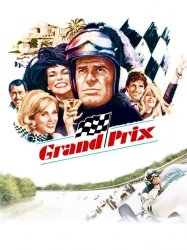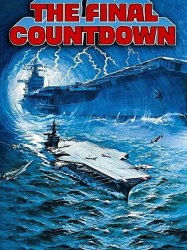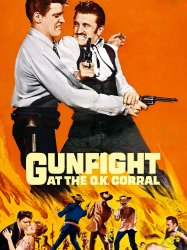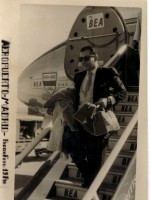Kirk Douglas is a Actor, Director, Scriptwriter and Producer American born on 9 december 1916 at New York City (USA)

Kirk Douglas (born Issur Danielovitch; December 9, 1916) is an American actor, producer, director, and author. After an impoverished childhood with immigrant parents and six sisters, he had his film debut in The Strange Love of Martha Ivers (1946) with Barbara Stanwyck. Douglas soon developed into a leading box-office star throughout the 1950s and 1960s, known for doing serious dramas, including westerns and war movies. During a sixty-year acting career, he has appeared in over 90 movies, and in 1960 was responsible for helping to end the Hollywood blacklist.
In 1949, after a lead role as an unscrupulous boxing hero in Champion, for which he was nominated as Best Actor, Douglas became a star. His style of acting relied on expressing great concentration, realism, and powerful emotions, and he subsequently gravitated toward roles requiring strong characters. Among his early films were Young Man with a Horn, playing opposite Lauren Bacall (1950), Billy Wilder's controversial Ace in the Hole (1951), and Detective Story (1951). He received a second Oscar nomination for his dramatic role in The Bad and the Beautiful (1952), where he played opposite Lana Turner. And his powerful acting as Vincent van Gogh in Lust for Life (1956) is considered one of his finest roles. He is one of the last living actors from the Golden Age of Hollywood.
In 1955, he established Bryna Productions, which began producing films as varied as Paths of Glory (1957) and Spartacus (1960). In those two films, he starred and collaborated with then relatively unknown director, Stanley Kubrick. He produced and starred in Lonely Are the Brave (1962), considered a cult classic, and Seven Days in May (1964), opposite Burt Lancaster, with whom he made seven films. In 1963, he starred in the Broadway play One Flew Over the Cuckoo's Nest, a story he purchased, which he later gave to his son Michael Douglas, who turned it into an Oscar-winning film.
As an actor and philanthropist, Douglas has received three Academy Award nominations, an Oscar for Lifetime Achievement, and the Medal of Freedom. As an author, he has written 10 novels and memoirs. Currently, he is No. 17 on the American Film Institute's list of the greatest male screen legends of classic Hollywood cinema, and the highest-ranked living person on the list. After barely surviving a helicopter crash in 1991 and then suffering a stroke in 1996, he has focused on renewing his spiritual and religious life. He lives with producer Anne Buydens, his wife of over 60 years.
Douglas married twice, first to Diana Dill, on November 2, 1943. They divorced in 1951.
The couple had two sons, actor Michael Douglas and producer Joel Douglas.
Afterwards, he met German American producer Anne Buydens in Paris while acting on location in Lust for Life. She originally fled from Germany to escape Nazism and survived by putting her multilingual skills to work at a film studio, doing translations for subtitles. They married on May 29, 1954, and in 2014 they celebrated their 60th wedding anniversary at the Greystone Mansion in Beverly Hills. They had two sons, producer Peter Douglas and actor Eric Douglas. Eric Douglas died on July 6, 2004, of a drug overdose.
Religion and renewed spirituality
In February 1991, Douglas survived a collision between a helicopter he was on, and a small plane above Santa Paula Airport. Two others were also injured, and two people on the plane died. This near-death experience sparked a search for meaning by Douglas, which led him, after much study, to embrace the Judaism in which he was raised. He documented this spiritual journey in his book Climbing the Mountain: My Search for Meaning (2001). In his earlier autobiography, The Ragman's Son (1988), he recalled, "years back, I tried to forget that I was a Jew," but later in his career he began "coming to grips with what it means to be a Jew," which became a theme in his life. In an interview in 2000, he explained this transition:
Judaism and I parted ways a long time ago, when I was a poor kid growing up in Amsterdam, N.Y. Back then, I was pretty good in cheder, so the Jews of our community thought they would do a wonderful thing and collect enough money to send me to a yeshiva to become a rabbi. Holy Moses! That scared the hell out of me. I didn't want to be a rabbi. I wanted to be an actor. Believe me, the members of the Sons of Israel were persistent. I had nightmares – wearing long payos and a black hat. I had to work very hard to get out of it. But it took me a long time to learn that you don't have to be a rabbi to be a Jew.
Douglas notes that the underlying theme of some of his films, including The Juggler (1953), Cast a Giant Shadow (1966), and Remembrance of Love (1982), was about "a Jew who doesn't think of himself as one, and eventually finds his Jewishness." The Juggler was the first Hollywood feature to be filmed in the newly established state of Israel. Douglas recalls that while there, he saw "extreme poverty and food being rationed." But he found it "wonderful, finally, to be in the majority." Its producer, Stanley Kramer, tried to portray "Israel as the Jews' heroic response to Hitler's destruction."
Although his children had a non-Jewish mother, Douglas states that they were "aware culturally" of his "deep convictions," and he never tried to influence their own religious decisions. Douglas' wife, Anne, converted to Judaism before they renewed their wedding vows in 2004. Douglas celebrated a second Bar-Mitzvah ceremony in 1999 at the age of eighty-three.
Philanthropy
Douglas and his wife have donated to various non-profit causes during his career, and were planning on donating most of their $80 million net worth.
Among the donations have been those to his former high school and college. In September 2001, he helped fund his high school's musical, "Amsterdam Oratorio," composed by Maria Riccio Bryce, who won the school Thespian Society's Kirk Douglas Award in 1968. In 2012 he donated $5 million to St. Lawrence University, his alma mater. The college used the donation for the scholarship fund he began in 1999.
He has also donated to various schools, medical facilities and other non-profit organizations in southern California. These have included the rebuilding of over 400 Los Angeles Unified School District playgrounds that were aged and in need of restoration. They established the Anne Douglas Center for Homeless Women at the Los Angeles Mission, which has helped hundreds of women turn their lives around. In Woodland Hills, they enlarged Harry's Haven Alzheimer's unit to care for patients at the Motion Picture Home. And in Culver City, they opened the Kirk Douglas Theater in 2004. They have also supported the Anne Douglas Childhood Center at the Sinai Temple of Westwood. In March 2015, Kirk and his wife donated $2.3 million to the Children's Hospital Los Angeles.
Politics
Douglas and his wife, Anne, have been involved in numerous volunteer and philanthropic activities. They traveled to more than 40 countries, at their own expense, to act as a goodwill ambassador for the U.S. Information Agency, speaking to audiences about why democracy works and what freedom means. In 1980, he flew to Cairo to talk with Egyptian President Anwar Sadat. For all his goodwill efforts, Douglas received the Presidential Medal of Freedom from President Jimmy Carter in 1981. Upon giving the award, Carter said that Douglas has "done this in a sacrificial way, almost invariably without fanfare and without claiming any personal credit or acclaim for himself." In subsequent years, he has testified before Congress about abuse of the elderly.
Douglas has been a lifelong supporter of the Democratic Party. He has on occasion written letters to politicians who were friends. He notes in his memoir, Let's Face It (2007), that he felt compelled to write to former president Jimmy Carter in 2006 in order to stress that "Israel is the only successful democracy in the Middle East... [and] has had to endure many wars against overwhelming odds. If Israel loses one war, they lose Israel."
Health
On January 28, 1996, he suffered a severe stroke, impairing his ability to speak. Doctors told his wife that unless there was rapid improvement, it was likely he would permanently lose his voice. After a long, daily, regime of voice therapy over the following months, his capacity to speak came back, but still limited. He was able to accept an honorary Academy Award two months later in March and thank the audience.
Douglas wrote about this experience in a book, My Stroke of Luck, which he hoped would be an "operating manual" for others on how to handle a stroke victim in their own family.
Hobbies
Douglas blogs semi-regularly; originally hosted on Myspace, his posts have been hosted by the Huffington Post since 2012. He is believed to be the oldest celebrity blogger in the world.
Source : Wikidata
Kirk Douglas

Birth name Issur Danielovitch Demsky
Nationality USA
Birth 9 december 1916 at New York City (USA)
Death 5 february 2020 (at 103 years)
Awards Legion of Honour, Presidential Medal of Freedom, National Medal of Arts
Nationality USA
Birth 9 december 1916 at New York City (USA)
Death 5 february 2020 (at 103 years)
Awards Legion of Honour, Presidential Medal of Freedom, National Medal of Arts
Kirk Douglas (born Issur Danielovitch; December 9, 1916) is an American actor, producer, director, and author. After an impoverished childhood with immigrant parents and six sisters, he had his film debut in The Strange Love of Martha Ivers (1946) with Barbara Stanwyck. Douglas soon developed into a leading box-office star throughout the 1950s and 1960s, known for doing serious dramas, including westerns and war movies. During a sixty-year acting career, he has appeared in over 90 movies, and in 1960 was responsible for helping to end the Hollywood blacklist.
In 1949, after a lead role as an unscrupulous boxing hero in Champion, for which he was nominated as Best Actor, Douglas became a star. His style of acting relied on expressing great concentration, realism, and powerful emotions, and he subsequently gravitated toward roles requiring strong characters. Among his early films were Young Man with a Horn, playing opposite Lauren Bacall (1950), Billy Wilder's controversial Ace in the Hole (1951), and Detective Story (1951). He received a second Oscar nomination for his dramatic role in The Bad and the Beautiful (1952), where he played opposite Lana Turner. And his powerful acting as Vincent van Gogh in Lust for Life (1956) is considered one of his finest roles. He is one of the last living actors from the Golden Age of Hollywood.
In 1955, he established Bryna Productions, which began producing films as varied as Paths of Glory (1957) and Spartacus (1960). In those two films, he starred and collaborated with then relatively unknown director, Stanley Kubrick. He produced and starred in Lonely Are the Brave (1962), considered a cult classic, and Seven Days in May (1964), opposite Burt Lancaster, with whom he made seven films. In 1963, he starred in the Broadway play One Flew Over the Cuckoo's Nest, a story he purchased, which he later gave to his son Michael Douglas, who turned it into an Oscar-winning film.
As an actor and philanthropist, Douglas has received three Academy Award nominations, an Oscar for Lifetime Achievement, and the Medal of Freedom. As an author, he has written 10 novels and memoirs. Currently, he is No. 17 on the American Film Institute's list of the greatest male screen legends of classic Hollywood cinema, and the highest-ranked living person on the list. After barely surviving a helicopter crash in 1991 and then suffering a stroke in 1996, he has focused on renewing his spiritual and religious life. He lives with producer Anne Buydens, his wife of over 60 years.
Biography
Marriages and childrenDouglas married twice, first to Diana Dill, on November 2, 1943. They divorced in 1951.
The couple had two sons, actor Michael Douglas and producer Joel Douglas.
Afterwards, he met German American producer Anne Buydens in Paris while acting on location in Lust for Life. She originally fled from Germany to escape Nazism and survived by putting her multilingual skills to work at a film studio, doing translations for subtitles. They married on May 29, 1954, and in 2014 they celebrated their 60th wedding anniversary at the Greystone Mansion in Beverly Hills. They had two sons, producer Peter Douglas and actor Eric Douglas. Eric Douglas died on July 6, 2004, of a drug overdose.
Religion and renewed spirituality
In February 1991, Douglas survived a collision between a helicopter he was on, and a small plane above Santa Paula Airport. Two others were also injured, and two people on the plane died. This near-death experience sparked a search for meaning by Douglas, which led him, after much study, to embrace the Judaism in which he was raised. He documented this spiritual journey in his book Climbing the Mountain: My Search for Meaning (2001). In his earlier autobiography, The Ragman's Son (1988), he recalled, "years back, I tried to forget that I was a Jew," but later in his career he began "coming to grips with what it means to be a Jew," which became a theme in his life. In an interview in 2000, he explained this transition:
Judaism and I parted ways a long time ago, when I was a poor kid growing up in Amsterdam, N.Y. Back then, I was pretty good in cheder, so the Jews of our community thought they would do a wonderful thing and collect enough money to send me to a yeshiva to become a rabbi. Holy Moses! That scared the hell out of me. I didn't want to be a rabbi. I wanted to be an actor. Believe me, the members of the Sons of Israel were persistent. I had nightmares – wearing long payos and a black hat. I had to work very hard to get out of it. But it took me a long time to learn that you don't have to be a rabbi to be a Jew.
Douglas notes that the underlying theme of some of his films, including The Juggler (1953), Cast a Giant Shadow (1966), and Remembrance of Love (1982), was about "a Jew who doesn't think of himself as one, and eventually finds his Jewishness." The Juggler was the first Hollywood feature to be filmed in the newly established state of Israel. Douglas recalls that while there, he saw "extreme poverty and food being rationed." But he found it "wonderful, finally, to be in the majority." Its producer, Stanley Kramer, tried to portray "Israel as the Jews' heroic response to Hitler's destruction."
Although his children had a non-Jewish mother, Douglas states that they were "aware culturally" of his "deep convictions," and he never tried to influence their own religious decisions. Douglas' wife, Anne, converted to Judaism before they renewed their wedding vows in 2004. Douglas celebrated a second Bar-Mitzvah ceremony in 1999 at the age of eighty-three.
Philanthropy
Douglas and his wife have donated to various non-profit causes during his career, and were planning on donating most of their $80 million net worth.
Among the donations have been those to his former high school and college. In September 2001, he helped fund his high school's musical, "Amsterdam Oratorio," composed by Maria Riccio Bryce, who won the school Thespian Society's Kirk Douglas Award in 1968. In 2012 he donated $5 million to St. Lawrence University, his alma mater. The college used the donation for the scholarship fund he began in 1999.
He has also donated to various schools, medical facilities and other non-profit organizations in southern California. These have included the rebuilding of over 400 Los Angeles Unified School District playgrounds that were aged and in need of restoration. They established the Anne Douglas Center for Homeless Women at the Los Angeles Mission, which has helped hundreds of women turn their lives around. In Woodland Hills, they enlarged Harry's Haven Alzheimer's unit to care for patients at the Motion Picture Home. And in Culver City, they opened the Kirk Douglas Theater in 2004. They have also supported the Anne Douglas Childhood Center at the Sinai Temple of Westwood. In March 2015, Kirk and his wife donated $2.3 million to the Children's Hospital Los Angeles.
Politics
Douglas and his wife, Anne, have been involved in numerous volunteer and philanthropic activities. They traveled to more than 40 countries, at their own expense, to act as a goodwill ambassador for the U.S. Information Agency, speaking to audiences about why democracy works and what freedom means. In 1980, he flew to Cairo to talk with Egyptian President Anwar Sadat. For all his goodwill efforts, Douglas received the Presidential Medal of Freedom from President Jimmy Carter in 1981. Upon giving the award, Carter said that Douglas has "done this in a sacrificial way, almost invariably without fanfare and without claiming any personal credit or acclaim for himself." In subsequent years, he has testified before Congress about abuse of the elderly.
Douglas has been a lifelong supporter of the Democratic Party. He has on occasion written letters to politicians who were friends. He notes in his memoir, Let's Face It (2007), that he felt compelled to write to former president Jimmy Carter in 2006 in order to stress that "Israel is the only successful democracy in the Middle East... [and] has had to endure many wars against overwhelming odds. If Israel loses one war, they lose Israel."
Health
On January 28, 1996, he suffered a severe stroke, impairing his ability to speak. Doctors told his wife that unless there was rapid improvement, it was likely he would permanently lose his voice. After a long, daily, regime of voice therapy over the following months, his capacity to speak came back, but still limited. He was able to accept an honorary Academy Award two months later in March and thank the audience.
Douglas wrote about this experience in a book, My Stroke of Luck, which he hoped would be an "operating manual" for others on how to handle a stroke victim in their own family.
Hobbies
Douglas blogs semi-regularly; originally hosted on Myspace, his posts have been hosted by the Huffington Post since 2012. He is believed to be the oldest celebrity blogger in the world.
Best films
Usually with
Filmography of Kirk Douglas (97 films)
Actor
 , 1h26
, 1h26Origin United-kingdom
Genres Documentary
Themes Documentary films about business, Documentary films about the visual arts, Documentary films about the film industry, Documentaire sur une personnalité
Actors Marlene Dietrich, Jack Cardiff, Martin Scorsese, Orson Welles, Leslie Caron, Kirk Douglas
Roles Self – Interviewee
Rating75%





En 2001, Jack Cardiff (1914-2009) est devenu le premier directeur de la photographie de l'histoire des Oscars à recevoir un Oscar d'honneur. Mais la première fois qu'il a serré la célèbre statuette dans sa main, c'était un demi-siècle plus tôt, lorsque son travail de caméra en Technicolor avait été récompensé pour le Narcisse noir de Powell et Pressburger. Au-delà de The African Queen de John Huston et de War and Peace de King Vidor, les films du duo créatif britannico-hongrois (The Red Shoes et A Matter of Life and Death également) garantissent l'immortalité au célèbre caméraman dont la carrière s'étend sur soixante-dix ans.
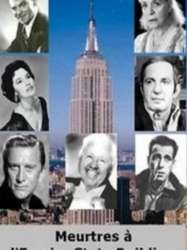
Actors Ben Gazzara, Mickey Rooney, Kirk Douglas, Cyd Charisse, Richard Erdman, Anne Jeffreys
Roles Jim Kovalski
Rating64%





William Karel rend hommage au cinéma américain et plus particulièrement au film noir en inventant une nouvelle fiction à partir des films emblématiques du Cinéma noir américain. Des acteurs mythiques de l'âge d'or hollywoodien, tels Kirk Douglas, Mickey Rooney ou Ben Gazzara, grâce à leur participation bienveillante au nouveau scénario, redonnent vie au New York des années 30 et 40, sur fond de prohibition, de mafia et de guerre des gangs.

Trumbo (2007)
, 1h36Directed by Peter Askin
Origin USA
Genres Documentary, Historical
Themes Films about writers, Documentary films about business, Documentary films about the film industry, Documentary films about historical events, Documentaire sur une personnalité, Documentary films about cities, Political films
Actors Dalton Trumbo, Joan Allen, Michael Douglas, Liam Neeson, Paul Giamatti, Josh Lucas
Roles Self - Interviewee
Rating73%





En se concentrant sur la vie de Dalton Trumbo (1905-1976), ce film examine les effets sur les individus et les familles de la poursuite par le Congrès des communistes d'Hollywood après la Seconde Guerre mondiale. Trumbo était l'un des nombreux écrivains, réalisateurs et acteurs qui ont invoqué le premier amendement en refusant de répondre aux questions sous serment. Ils ont été mis sur la liste noire et emprisonnés. Nous suivons Trumbo en prison, en exil au Mexique avec sa famille, dans la pauvreté, dans le rejet public de ses enfants, dans ses écrits sous d'autres noms, et dans une éventuelle mais incomplète réhabilitation. Des acteurs lisent ses lettres ; ses enfants et ses amis se souviennent et commentent. Des photos d'archives, des films d'actualités et des interviews ajoutent de la texture.
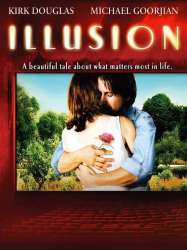
Illusion (2004)
, 1h46Directed by Michael A. Goorjian
Origin USA
Genres Drama, Romance
Actors Kirk Douglas, Michael A. Goorjian, Bryan Cranston, Ted Raimi, Kevin Weisman, Richmond Arquette
Roles Donald Baines
Rating71%





Legendary film director Donald Baines lies dying alone in his private screening room, watching the films he has devoted his life to creating. Having isolated himself from family and friends, he now regrets many personal sacrifices. The rejection of his illegitimate child, Christopher, brings him the most pain, since Donald saw him only once, 30 years ago.

It Runs in the Family (2003)
, 1h49Directed by Fred Schepisi
Origin USA
Genres Drama, Comedy, Comedy-drama
Themes Films about families
Actors Kirk Douglas, Cameron Douglas, Diana Douglas, Rory Culkin, Bernadette Peters, Michael Douglas
Roles Mitchell Gromberg
Rating55%





The story involves a highly successful New York City family, each with its set of problems, and highlights the difficulties of the father-son relationship. Mitchell Gromberg is trying to deal with health problems resulting from a stroke. (Kirk Douglas himself suffered a stroke in 1996.) His son, Alex, works as a lawyer in the firm that his father founded, but is questioning the usefulness of his work and his place in the family. Alex's son, Asher, does not take college seriously and seems lost. The youngest son Eli, while extremely intelligent, is entering a difficult pre-adolescent time, while being socially awkward.
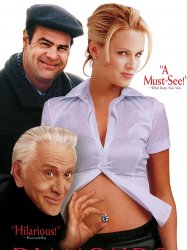
Diamonds (1999)
, 1h31Directed by John Mallory Asher
Origin USA
Genres Drama, Comedy
Themes Films about sexuality, Films about virginity
Actors Kirk Douglas, Dan Aykroyd, Lauren Bacall, Corbin Allred, Kurt Fuller, Jenny McCarthy
Roles Harry Agensky
Rating55%





An elderly man and his estranged son search for treasure and try to repair their relationship in this bittersweet comedy. Harry Agensky (Kirk Douglas) is a one-time welterweight boxing champion who lives in Canada with his son Moses (Kurt Fuller). Harry's other son, Lance (Dan Aykroyd), feels that his father never really cared about his dreams and ambitions, and now Lance has little affection for his Dad. However, Lance's relationship with his teenage son Michael (Corbin Allred) is not faring much better. Lonely since the death of his wife and infirm due to a stroke, Harry wants to retire to a ranch in Northern Canada, but he can't afford the property. Lance invites Harry along for a skiing trip with Michael; Harry agrees, but at the last minute he talks them into going to Nevada instead. Harry claims he threw a fight years ago and was paid off in a cache of diamonds that he hid somewhere in Vegas; if he can find the gems, he'll be able to buy the ranch. Lance is dubious, but he gives in to Harry's determination and the three head for Nevada, hoping to find both the diamonds. On the way there, the men visit a local brothel run by madame Sin-Dee (Lauren Bacall), when Harry convinces the group, so that he can have sex for the first time in eight years.18-year-old grandson Michael gets his Dad to let him join so that he can lose his virginity. Following their quest for the hidden diamonds, both father and son learn a lesson about reconciliation and the price of growing older.

A Century of Cinema (1994)
, 1h12Origin USA
Genres Documentary
Themes Films about films, Documentary films about business, Documentary films about the film industry
Actors Arnold Schwarzenegger, Richard Attenborough, Dan Aykroyd, Kim Basinger, Milton Berle, George Burns
Roles Self
Rating57%





Un siècle de cinéma vu par quelques-uns de ses plus prestigieux représentants…

Greedy (1994)
, 1h53Directed by Jonathan Lynn
Origin USA
Genres Comedy
Themes Films about families
Actors Michael J. Fox, Kirk Douglas, Nancy Travis, Olivia D'Abo, Phil Hartman, Ed Begley Jr.
Roles Uncle Joe
Rating62%





Carl (Begley), Ed (Balaban), Frank (Hartman), Glen (Burns), and Patti McTeague (Camp) are the greedy relatives of wealthy, wheelchair-bound scrap-metal tycoon Uncle Joe McTeague (Douglas). They continually suck up to him and try to outdo each other in order to inherit his millions when he passes away. With their attempts constantly failing and irritable Uncle Joe showing a decided interest in his new sexy "nurse" Molly (d'Abo), Frank decides to hire a private detective named Laura (Khandi Alexander) to bring in his brother Daniel (who turned his back on the family years ago because of their money driven ways) believing if they can make up, Uncle Joe will thaw towards them.
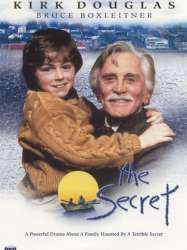
The Secret (1992)
, 2hDirected by Karen Arthur
Origin USA
Genres Drama
Actors Kirk Douglas, Bruce Boxleitner, Skipp Sudduth, Brock Peters, Anne Twomey, Laura Harrington
Roles Grandpa Mike Dunmore
Rating60%





À Hollywood, pour le tournage d'une grande série télévisée, hommes et femmes luttent avec acharnement afin d'appartenir à la prestigieuse équipe du producteur Mel Weschler. Tout semble aller pour le mieux mais toute existence a ses secrets et, si bien gardés soient-ils, un jour la vérité explose.
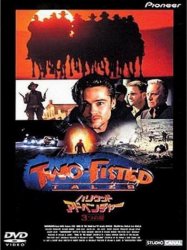
Two-Fisted Tales (1992)
, 1h28Directed by Richard Donner, Robert Zemeckis, Tom Holland
Origin USA
Genres War, Horror, Western
Themes Comedy horror films
Actors William Sadler, David Morse, Brad Pitt, Kirk Douglas, Lance Henriksen, Dan Aykroyd
Roles General Calthrop
Rating57%





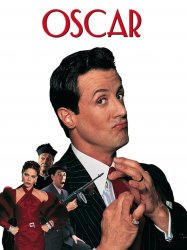
Oscar (1991)
, 1h49Directed by John Landis
Origin USA
Genres Thriller, Comedy, Action
Themes Mafia films, Gangster films
Actors Sylvester Stallone, Marisa Tomei, Ornella Muti, Tim Curry, Chazz Palminteri, Peter Riegert
Roles Eduardo Provolone
Rating64%





In the prologue, gangster Angelo "Snaps" Provolone promises his dying father (Kirk Douglas) that he will give up a life of crime, and instead "go straight".
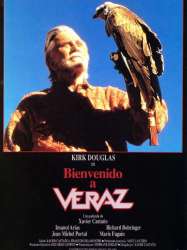
Welcome to Veraz (1991)
Directed by Xavier Castano
Genres Drama
Actors Richard Bohringer, Kirk Douglas, Roger Souza, Jean-Pierre Bagot, Jean-Michel Portal, Marie Fugain
Roles Quentin
Rating49%





Le film est un hymne à la nature. Théo est un adolescent, son père le conduit dans une école privée catholique dans le Sud-Ouest dans laquelle il sera contraint de terminer ses études. Lors d'un arrêt dans une station essence, le jeune Théo en profite pour s'enfuir et se réfugier dans la montagne. Un milieu hostile pour ce jeune fugueur qui ne connaît rien de la nature. Il fait la connaissance de Quentin, un vieil homme solitaire qui vit dans la montagne loin des hommes et se bat pour sauvegarder les derniers ours dans les Pyrénées. C'est un voyage initiatique dans lequel le vieil homme va lui apprendre à vivre dans la forêt et à comprendre le monde sauvage. Théo ressortira grandi de cette expérience.
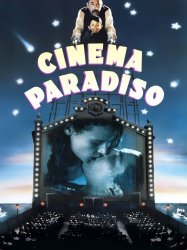
Cinema Paradiso (1988)
, 1h58Directed by Giuseppe Tornatore
Origin Italie
Genres Drama, Romance
Themes L'adolescence, Films about films, Films about children, Medical-themed films, Seafaring films, Transport films, Films about disabilities, La cécité
Actors Philippe Noiret, Salvatore Cascio, Marco Leonardi, Jacques Perrin, Brigitte Fossey, Antonella Attili
Roles Ulysses (archive footage) (uncredited)
Rating84%





In Rome, in the 1980s, famous Italian film director Salvatore Di Vita returns home late one evening, where his girlfriend sleepily tells him that his mother called to say someone named Alfredo has died. Salvatore obviously shies from committed relationships and has not been to his home village of Giancaldo, Sicily in 30 years. As his girlfriend asks him who Alfredo is, Salvatore flashes back to his childhood.
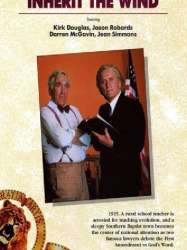
Inherit the Wind (1988)
, 1h36Directed by David Greene
Origin USA
Genres Drama
Themes Films about religion, Films based on plays
Actors Kirk Douglas, Jason Robards, Darren McGavin, Jean Simmons, Michael Ensign, Megan Follows
Roles Matthew Harrison Brady
Rating65%





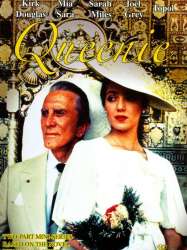
Queenie (1987)
, 3h56Directed by Larry Peerce
Origin USA
Genres Drama
Themes Films about immigration
Actors Mia Sara, Joss Ackland, Martin Balsam, Sarah Miles, Serena Gordon, Kirk Douglas
Roles David Konig
Rating66%





Queenie Kelley (Oberon had been known earlier in life as "Queenie O'Brien" and "Queenie Thompson") is an extremely beautiful girl of Indian and Irish descent, fair enough to pass for white. Growing up in Calcutta, however, Queenie is made all too aware of her "chee-chee" (mixed) background by her enemies, including wealthy, jaded socialite Penelope Daventry.
 Connection
Connection


